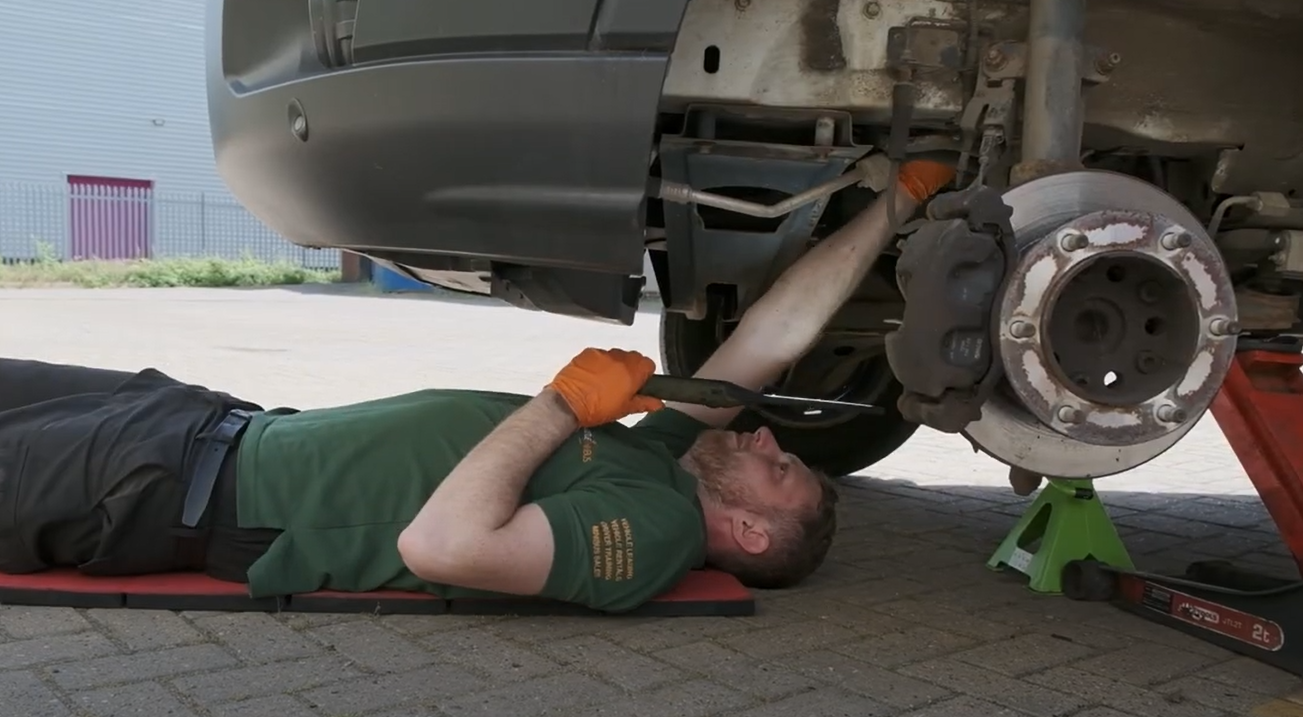Are Minibus Safety Inspections a Legal Requirement

Emeline Thompson, Compliance Coordinator at Rivervale, the new home for Castle Minibus, is often asked if minibus safety inspections are mandatory or a legal requirement. She explains what is legally required and reasons why Rivervale recommends safety inspections every 10 weeks to their clients.
Understanding the Legal Requirements
In my role as Compliance Co-ordinator, we have completed extensive research on what is required to run a legally compliant minibus. Rivervale is the only company to offer a Minibus Management Course, written in consultation with a former Senior Traffic Commissioner, to help schools navigate this minefield of information. We are not giving legal advice, only best practice recommendations.
That said, Rivervale considers minibus safety inspections to be a requirement of ‘maintaining a roadworthy vehicle,’ which is a legal requirement. We have consulted many sources including the CTA (Community Transport Association) and ROSPA (Royal Society on the Prevention of Accidents) on safety inspections, but we base our advice on the Department of Transport and DVSA’s guidance coupled with the lived experiences of our customers.
DVSA’s Definition of Roadworthiness
The DVSA’s definition of roadworthiness is:
‘complying with the appropriate vehicle construction, road safety, environmental and operating standards required by the law in the UK. For a driver and operator, it is a criminal offence to use an unroadworthy vehicle on the road.’
Section 4 of the DVSA Guide to Maintaining Roadworthiness describes ‘why intermediate safety checks are essential to an effective roadworthiness maintenance system’:
‘Safety inspections form part of the overall maintenance plan of a vehicle, their purpose is to assess the safety critical items and other items affecting roadworthiness and the environment. Safety inspections should be undertaken independently from routine servicing and repair.’
Guide to Maintaining Roadworthiness (DVSA)
Section 19 Permits and Safety Inspections
Furthermore, the application for a Section 19 Permit requires evidence that the applicant has a contract/agreement to complete safety inspections at regular intervals. The DVSA’s guide also states that:
‘Operators must comply with the declaration they give to the relevant traffic commissioner that they will ensure that their vehicles are operated in a fit and serviceable condition.’
Completing safety inspections at least every 10 weeks is evidence that an organisation has the makings of a robust maintenance system as required by the DVSA.
Why Every 10 Weeks?
The DVSA’s guide to roadworthiness gives a time frame of every 10-13 weeks for lightly loaded vehicles with easy operating conditions (their smallest time frame) and every 6 weeks for vehicles aged 12 years and over. Rivervale recommends every 10 weeks as we have seen Section 19 Permit applications denied to organisations who had inspections completed at intervals greater than 10 weeks. If we recommended safety inspections every 3 months, we would put organisations at significant risk of either not being granted their Section 19 Permit or having them revoked should they come under scrutiny.
If you are denied a Section 19 Permit, or your application is delayed because you have not submitted the relevant safety inspection documentation, you will not be able to operate your minibuses until you have a valid permit.
There is more information on the Department for Transport’s Recommended Maintenance Arrangements for Section 19 Permit . It confirms within its summary of the DVSA’s Guide to Maintaining Roadworthiness that:
Daily walkaround checks [and] vehicle safety inspection and routine maintenance inspections to be carried out at set intervals on items which affect vehicle safety, followed by the repair of any faults. These are in addition to the servicing of the vehicle and the MOT test.
Best Practice Recommendations
Following the government’s guidance, Rivervale considers minibus inspections to be a vital part of an operator’s legal obligation to maintain roadworthy vehicles, along with daily vehicle checks, default reporting, and keeping records of checks, inspections, and repairs for at least 15 months. We recommend every 10 weeks for safety inspections in line with the DVSA and CTA’s recommendations, as best practice, and to avoid issues with Section 19 Permits.
Contact Rivervale
If you have any further questions about minibus safety inspections, Rivervale completed over 12,000 last year and has a dedicated compliance team you can call, including myself, and my colleague Marianne Woodwell, on 01869 253744, email minibus@rivervale.co.uk or visit Rivervale Minibus.
